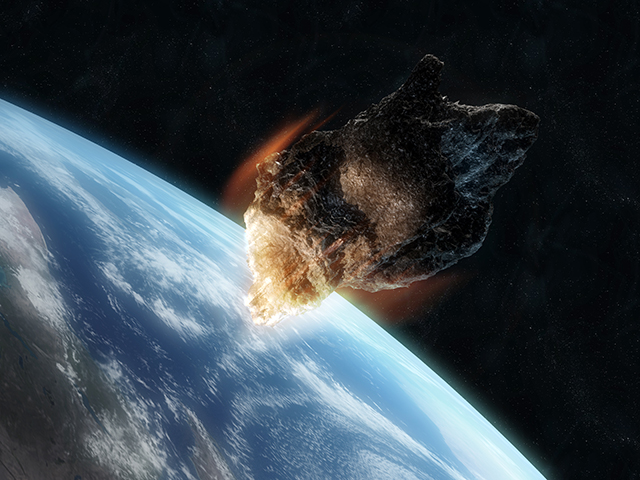ADVERTISEMENT
Filtered By: Scitech
SciTech
It wasn't just an asteroid that killed off the dinosaurs
By MIKAEL ANGELO FRANCISCO

As it turns out, it wasn’t just a gigantic asteroid that exterminated the dinosaurs 65 million years ago: unfortunate timing had a significant role in it as well.
“The answer to the question ‘was it the asteroid?’ is ‘Yes . . . but,’” said Matthew Carrano, a palaeontologist from the National Museum of Natural History. Carrano co-authored a paper on the subject that was recently published in the online journal Biological Reviews.
“And the ‘but’ is just as important as the ‘yes’.”
The dinosaur extinction event occurred after the 10 km-wide Chicxulub asteroid crashed into the Yucatan Peninsula in Mexico with a force equivalent to about a hundred thousand billion tons of TNT. In addition to powerful earthquakes, volcanic eruptions, massive tidal waves, acid rain, and wildfires all over the world, the impact is also believed to have caused a global dust cloud to cover the atmosphere and block out the sun’s light for an extended period of time.
However, after closely examining the North American fossil record from that time period, the researchers believe that, under more favorable circumstances, the dinosaurs could have actually survived the asteroid impact’s devastating effects.
"The asteroid almost certainly did it but it just so happened to hit at a bad time when dinosaur ecosystems had been weakened by a loss of diversity," explained Steve Brusatte, a paleontologist from Edinburgh University and co-author of the paper. "If the asteroid had hit a few million years earlier, or a few million years later, then dinosaurs probably wouldn't have gone extinct."
Saur luck
During the late Cretaceous period, herbivorous dinosaurs (such as ceratopsians and hadrosaurs) had already been suffering from declining populations for at least a million years. Dinosaurs in general were not exactly dwindling in numbers at the time; in fact, Carrano said that “there (were) probably more dinosaurs around at the end of the Cretaceous than there (were) at any other time.” Still, the decrease in diversity – which Carrano described as “not a very big drop(,) maybe just ten percent” – was just enough to be a chink in the species’ armor.
Due to the key role of herbivorous species in the ecosystem as the link between plants (which they consume and turn into energy) and other animals (which prey on them), the loss in plant-eating biodiversity made it more difficult for the “terrible lizards” to cope with the worldwide changes brought about by the impact.
Add this to the fact that the Earth was undergoing drastic climate and environment changes at the time, and it quickly becomes apparent that the asteroid was merely a piece of the bigger puzzle that explains how 80% of the prehistoric world’s population were wiped out.
Carrano suggested that researchers ought to look at China, Spain, Southern France, and other places in the world to gather more information on the fossil record and see if the data supports their findings from North America.
Brusatte affirmed that, had the dinosaurs been given a few million years more, herbivorous dinosaur populations could have bounced back; after all, spikes and declines in dinosaur populations were believed to have been a regular occurrence throughout the species’ 150-million-year rule on the planet.
"If the asteroid didn't hit, I have no reason to believe they'd have gone extinct. There is a good chance they would still be with us today,” said Brusatte. “And if dinosaurs didn't go extinct, then mammals would have never had their opportunity to blossom.”
“So if it wasn't for that asteroid, then humans probably wouldn't be here. It's as simple as that.” — TJD, GMA News
More Videos
Most Popular




